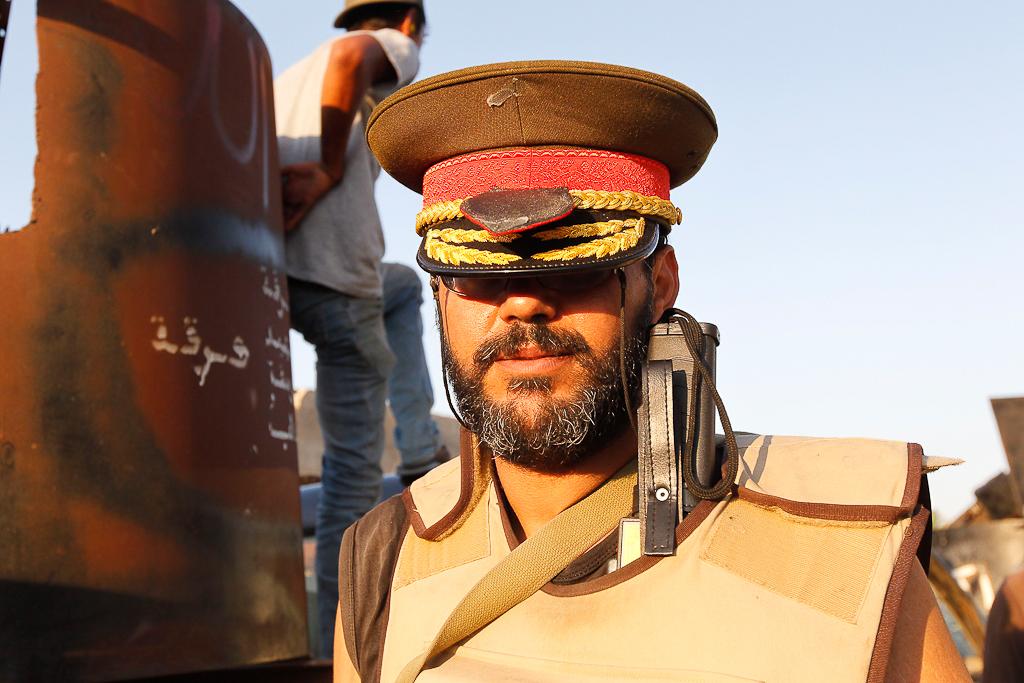Sarkozy to meet with rebel leaders
A Libyan rebel poses with a hat belonging to Muammar Gaddafi at Bab Al-Aziziya compound in Tripoli August 23, 2011.
As Libyan rebels wait to see if the new 2 million dinar ($1.7 million) bounty on Muammar al-Gaddafi’s head convinces his associates to reveal where the former leader of Libya is hiding, the international community is moving ahead with plans to support a post-Gaddafi nation.
(More from GlobalPost: Libyan rebels offer bounty for Gaddafi)
On Wednesday, France’s President Nicolas Sarkozy met with Mahmoud Jibril, the prime minister of the rebels' National Transitional Council, to discuss next steps. At a press conference with Jibril following the meeting, Sarkozy announced that an international meeting on helping the new Libya will take place in Paris on Sept. 1. More than 30 countries have been invited to the conference, including China, Russia and Brazil, the New York Times reports.
France and the U.K. will coordinate the conference, the Telegraph reports. In a statement, the office of British Prime Minister David Cameron said the meeting will be “an opportunity for the NTC to set out how the international community can help them on the path to establishing a free, democratic and inclusive Libya.”
Jibril said that the NTC intended to hold legislative and presidential elections in eight months. “We want a democratic government and a just constitution,” he said. “Above all we do not wish to continue to be isolated in the world as we have been up to now.”
Libya will need money to rebuild, and the Guardian reports that American, Britain and French diplomats in the United Nations in New York were working on a Security Council resolution that would unfreeze Libyan funds blocked in western accounts by the end of the weekend.
According to the Guardian:
The NTC's priority is to secure a speedy release of funds frozen abroad, which would help to strengthen its legitimacy in the eyes of ordinary Libyans. The total funds potentially available to the new government could be more than $100bn (£61bn) – more than the country's GDP and a vast reserve that would give the NTC an enormous advantage over other new regimes swept in by the Arab spring.
In the longer term, the country can count on its oil reserves – the largest on the African continent.
Of the total funds frozen, $37bn is in the US, $20bn is in Britain and about $7bn is in Germany. All three countries are ready to release the funds as soon as they have clearance from the UN security council.
Sarkozy also pledged that NATO forces would continue to support the rebels as long as Gaddafi remained a threat, the New York Times reports.
“We are prepared to continue military operations as long as our Libyan friends need them,” Sarkozy said. “So long as there are pockets of resistance we will be at [their] side.”
Every day, reporters and producers at The World are hard at work bringing you human-centered news from across the globe. But we can’t do it without you. We need your support to ensure we can continue this work for another year.
Make a gift today, and you’ll help us unlock a matching gift of $67,000!
